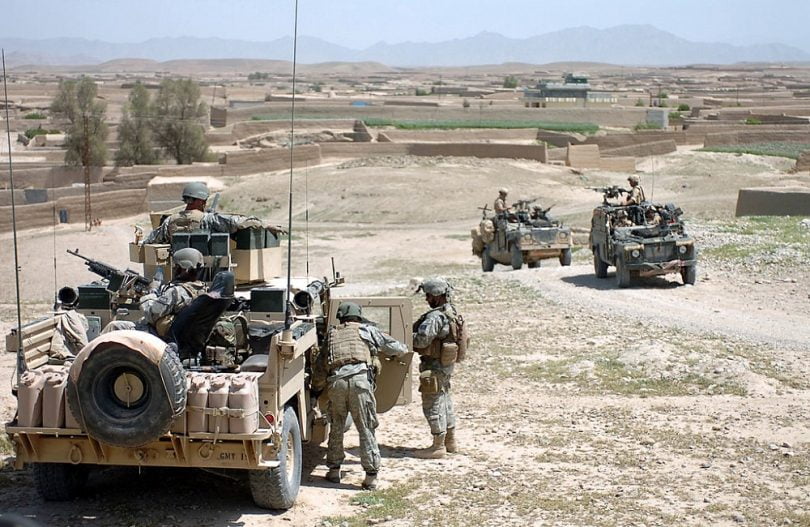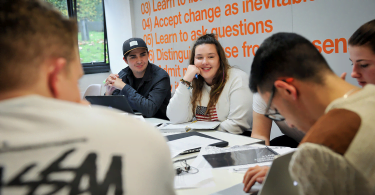Afghanistan was an assignment I never thought would land on my desk. But one phone call on a July day in 2008 from the Ministry of Defence changed all that and the course of my career.
Back then I was the health reporter from the South Wales Evening Post and the MoD wanted reporters covering that topic to go out to Helmand Province to write about the work of Welsh medics stationed at the field hospital in Camp Bastion.
I had only one answer and my editor agreed to the trip. It was the first of six reporting stints I did in Afghanistan before British troops withdrew two years ago.
It was a challenging environment to cover in many ways, not only dealing with the searing heat, the desert dust, but also being able to get articles filed home that offered a truthful insight into the conflict.
A need for determination
The difficulty in being an embedded journalist working alongside UK forces is sometimes you interview soldiers who do not follow the party line. In one exclusive, I wrote one wanted to reveal that he didn’t trust the Afghan police that he was working alongside after one rogue officer killed his friend in a green on blue attack. After much argument with those in the Army who were checking my stories for Operation Security (OPSEC) issues, I got the story released – it made the Post front page and also was picked up by some of the London-based nationals.
Determination not to bow to pressure and change the line I had was key in producing the exclusives I did on what was the biggest ongoing news story in the world at that time. I had the opportunity to see where Prince Harry was stationed with the Gurkhas on J-TEC hill in Garsmir, where I went out and about with soldiers from 1st The Queen Dragoon Guards. It gave me the opportunity to understand more about Afghanistan’s war-torn past, with Russian tanks still left behind serving as a reminder.
Getting out from the relative safety of Camp Bastion, although that was sometimes prone to attack with a suicide bomber targeting close to the field hospital a month before I first visited, to Nad Ali and Babaji was a great experience. I remember interviewing a Swansea soldier with the sound of gunfire in the background.
I was told it was the Taliban fighting on The Dash area and asked whether I had been in a patrol base while it had come under attack. I hadn’t and it didn’t happen that day. But Afghan people walking through the area did bring the wires and the battery from inside of explosive device to our soldiers, underlying the sense of danger and risk faced day in day out by our troops.
I aimed to give an insight to our readers as to what Afghanistan was like and also tried to reflect on human interest stories linked to the conflict as well as looking at operations, the cost in terms of the death toll, the attacks from the Taliban, what strategy they were using to target our soldiers, what was being done to counter that and combine it with the political side. I wanted to make it relevant in a way that the Iraq conflict never was.
A changed viewpoint
On returning from Helmand Province the first time, it changed my perspective and I embraced the change of direction and left behind health reporting. Reporting on the troops has taken me to Canada, Germany, Cyprus, Northern Ireland and to the Brecon Beacons on numerous occasions to watch soldiers in their training.
As a journalist, you learn to be flexible and seize the opportunities that come your way. Afghanistan has led me to be highly commended for my journalism at the Wales Media Awards in the category of Newspaper Journalist of the Year in 2015. I also was invited to the Garden Party at Buckingham Palace, a couple of years ago, following my work in Helmand and continued support of the Poppy Appeal, which raises funds for the Royal British Legion to help our veterans.
Defence reporting was something I fell into, although I had always admired the work of the BBC’s Kate Adie and Jeremy Bowen. If other journalists are looking to follow that path I would suggest writing about the Army, Navy and RAF at local level and seeing what trips materialise. It’s highly unlikely a job in defence will come up straight away on a London national or paper of that calibre wherever you are based. I’m only one of three British regional journalists who hold that title.
To succeed in journalism, my best advice is always be determined, never give up, pass your shorthand and law – those are the basics to land you a job – and be open to the possibility of covering different subjects.
After all, my plan was to become a tennis writer, and I’ve ended up travelling around the world with my job in a way I’d never dreamed of.
Liz Perkins is Defence Reporter at the South Wales Evening Post.









